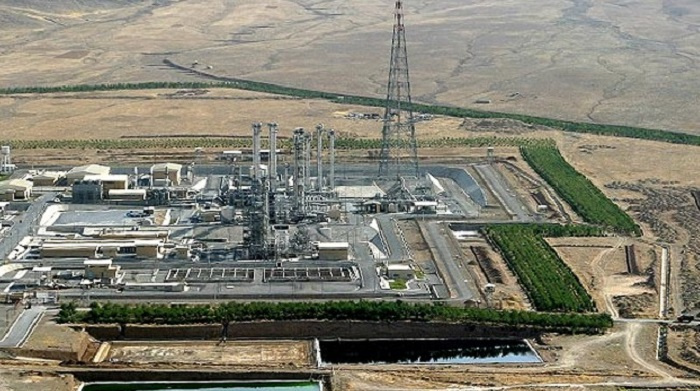Saving the Arak Reactor from Potential Perils

The fate of the heavy water reactor in Arak forms one of the key parameters agreed upon in Lausanne. It is supposed to undergo a fundamental transformation with the help of a new reactor core that would produce a significantly less amount of Plutonium, which can be used for 'weaponization'. Per the American interpretation of the Lausanne agreement, reflected in a "fact sheet," the "5 +1" countries would need to consent to the reactor's new design and the spent fuel would be shipped out of Iran.
According to Dr. Ali Akbar Salehi, the head of Iran's atomic organization, this is a blessing in disguise since Iran would be able to equip the Arak facility with the latest cutting-edge technology, thus benefiting the nation. Iran has reportedly rejected the West's offer of two light water reactors in place of the Arak heavy water reactor, thus fulfilling the regime's "red line" that none of its current facilities would be shut down.
Needless to say, much depends on the West's fulfillment of their promises and the absence of a sinister intention to maneuver with time in order to delay and ultimately scrap the whole idea of a heavy water reactor in Iran. This in turn requires firm and detailed guarantees and specific timeline that would not be subject to a future manipulation by the US and its Western allies.
Certainly, given the past US and European record of reneged contracts and non-fulfillment of obligations, it is perfectly possible to fathom a scenario where the promise of a re-designed Arak reactor would be postponed ad infinitum under one excuse or another, thus delegating it to a distant future, whereas the existing facility is close to completion and can conceivably go operational and turn into a major training center for Iran's doctors and nurses, as well as producing isotopes for various medical, agricultural and other civilian purposes. One thing Iran cannot do is to rely on empty and vague promises without immediate concrete actions that would prove the reliability of American and European pledges under the terms of a final agreement. But, with changing political guards in the Western democracies, this is not an easy issue and raises the legitimate Iranian fear and concern that several years from now the Arak reactor would still be stuck in the design implementation stage in a snail-paced frustrating process.
This is simply because the US is opposed to Iran's possession of a heavy water reactor and will likely pull every trick out of the hat in order to thwart the construction and functioning of a new Arak reactor. The big question is if Iran has sufficient political will to neutralize the Western shenanigan and chart a clear map to a new reactor without any delay?
Iran has the option of keeping the Arak reactor as is and simply agree to ship out a significant if not the entire volume of its spent fuel, in addition to pledging not to ever build a Plutonium separation plant.
Another option is to insist on the West's acceptance of a lion share of financial responsibility to re-design the Arak facility and thus turn into a stakeholder for the new reactor, thereby assuring its civilian purposes. Such a financial burden-sharing can be a stepping stone for the realization of a "win-win" resolution. Otherwise, the risk of Arak's slow death is huge. After all, since the Western governments have insisted on a change, it is better that they underwrite the significant re-design that can take a number of years. Somehow, Iran must find and blockage the loopholes that permit a clever delay game by the Western governments led by US, i.e., a tall order.
On the other hand, the prerequisite for a "win-win" parameter on Arak is a series of snap back initiatives that would spell doom for the western option of in effect cancelling it under the guise of rebuilding it. History after all often repeats itself and Iran needs to be simultaneously ready and prepared to adopt the scenario of being allowed to maintain the present design and going operational if the other side shows it is engaged in a bad-faith non-implementation of its obligations. All this is necessary simply because it is amply obvious that the West's true intention is to dispossess Iran of a heavy water reactor, not to assist in building one.

